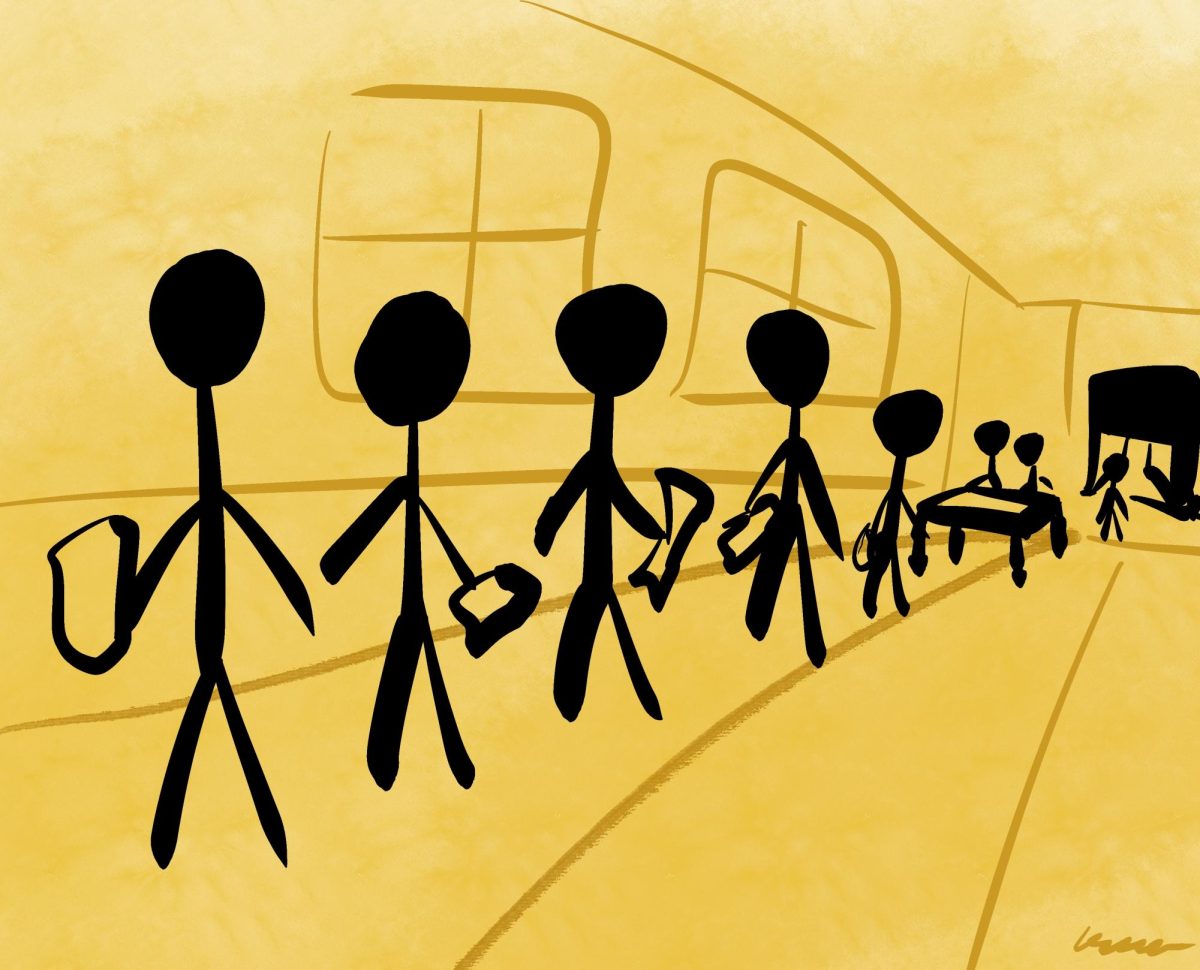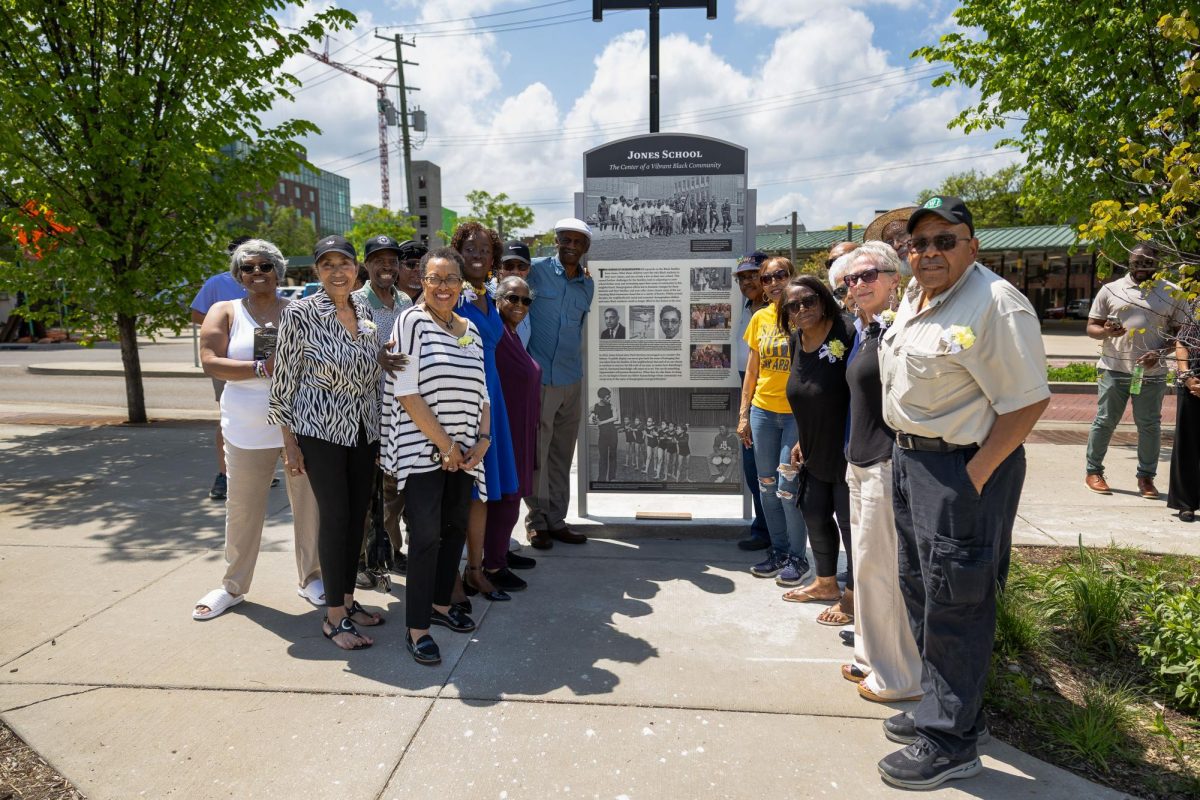
Sophie Faylor, a sophomore at Community High School, has a tall stack of index cards covered with tiny writing. These notes are all for one class: U.S. History AP, which she attends each afternoon at Huron High School.
“I decided that most of my classes are pretty easy and I wanted to have more of a challenge,” said Faylor of her decision to take the course. She is not alone in this choice. Many students at the larger high schools take various AP and AC classes, and a few Community students split-enroll in order to do this as well.
AP stands for Advanced Placement and refers to high school classes that function on a college course level. Students who take AP classes can potentially gain college credit if they do well on the end of the year exam. AC (accelerated) classes, which are often referred to as honors classes in other districts, move at a faster pace and study the material in more depth than the normal class level.
No Community classes have this distinction. “We’re too small to segment our classes into even smaller groups,” explained counselor John Boshoven. He added that although Community has grown larger and classes have become more crowded, there are still obstacles to creating new types of classes. “It takes a lot of money to pay teachers for special sections and if we start dividing our group into special sections, it costs too much to put that together in a small school.”
Still, the potential benefits of these accelerated classes are enough to motivate some students to split enroll. One factor is the learning-focused environment in an advanced class. “Kids who want to work hard and be more stretched and more pushed typically are going to be in those more advanced, more difficult classes. If you enjoy the stimulating conversation and the competition of students that are bright like you are, you are going to like the atmosphere of those classes better than classes that are appealing to kids who don’t want to work very hard,” said Boshoven.
Faylor also feels that the advanced nature of her AP class has helped her learn more. “I definitely think I’ve learned more in this class than I would have in a regular history class,” she said. “It has better prepared me for things in the future.”
However, much of the value of the class depends on the specific course. The amount of acceleration, as well as which aspects of the class are more challenging, varies for each AP and AC class. Faylor noted that for U.S. History AP, the difficulty of the class lies mostly in the amount of time it takes to complete all the work. “So far [the challenge is] not necessarily how hard the work is…it’s just a lot of time,” she explained.
Community sophomore Alex Meingast spoke on a different note about the German 3 AC class he takes at Pioneer: “The only thing that’s really different is the tests– there are just harder exams and tests.” Meingast, unlike Faylor, does not feel that his course contains many educational benefits. “The specific class I’m taking…it’s not a very rigorous course and the AC doesn’t make it that much harder, doesn’t really help you that much more,” he said. Still, he hopes to take more accelerated classes in the future and he does see one advantage of his course: “I think it’s important [to take AC classes]. I think it definitely looks good to take an AC class [for] a college application.”
Many students, like Meingast, are motivated to take more rigorous courses in order to build a more impressive college resume. “Colleges want you to maximize or seek the most rigorous course you can be successful in. And so from the college perspective, it’s a good thing when you’ve done that,” explained Boshoven. Of course, since Community does not offer accelerated or advanced placement classes within the building, colleges evaluate Community students’ applications differently.
Colleges ask Boshoven to rate the difficulty of the classes, and he explains to them which classes have a more rigorous nature by reputation. It also depends on the way the subject is structured. “[It’s a matter of] which, by reputation, are the most rigorous English classes. Science, it’s a matter of whether you took all four years, the same with foreign language. And math, of course, we go through Calculus. But some students actually go beyond Calculus, so they would even seek additional rigor from there,” said Boshoven.
Community sophomore Hank Miller does not see many advantages in taking AP and AC classes. His view is that their only purpose is to look good on college applications, and that students usually only take them because of the frenzy to get into a “good” college. “It creates an additional level of stress on high school students,” he said. “I really like that Community doesn’t have [AP and AC classes], just because you focus more on learning rather than just, ‘Oooh, college.’”
Tod Tharp, a science teacher at Community who formerly taught Geophysical Science AC at Pioneer, can see both sides of the issue. “I think that if you are a serious college-bound student and want to see how you might do in college, it might be beneficial to take an AP class or two, because I think it’s more along the lines of what you’re going to see, pacing-wise,” he said, “It’s just the pacing: how fast you’re going through stuff and getting the material and processing the material and having assessments on your material and then moving on.”
But Tharp also really loves Community’s Foundations of Science program and believes that students can learn just as much from it as they can from the AC and AP classes at the other schools. “If you look at the scores of the Community students on the standardized tests, the MEAP and the ACT, they do as well or better than, you know, maybe the bigger schools, where they have the kids doing the AC or AP program,” he said.
Taking AC and AP classes at the larger high schools is just one way to prepare for college or to additionally challenge oneself. Though they may not have in-building AC and AP options, Community students have the opportunity to take actual college courses at the University of Michigan, Washtenaw Community College or Eastern Michigan University, and many of them elect to do this. “Our students at Community typically don’t want to go to the big high schools and take a class…taught by a high school teacher. They typically would rather take a college class, at a college campus, taught by a college instructor,” said Boshoven.
There are also advantages to being in the multi-level classes at Community.
“We find real value in learning from each other in the collaborative way,” said Boshoven. “Psychologically, and really, philosophically.” Students at different levels and with different learning styles can come together in the Community classes and learn from one another.
The question of the necessity of AP and AC classes is not one easily answered. There is no true way to measure it, and it depends mainly on opinion and personal perspective, as well as the specific class. “I think it’s definitely valuable [to take an AP or AC class], but that being said, I never took an AP class in high school, it’s something they just didn’t have at my school, so I don’t know if I would have been better in college or worse,” said Tharp.
Meingast summed it up by saying, “I think…it is ultimately a good thing to be challenged.” But exactly what constitutes “challenging” is different for everyone, and Community students are lucky enough to have several options. Whether it be through in-building classes, AC or AP classes at the other high schools or college courses, it is up to each Community individual to determine how best to learn and be challenged.









